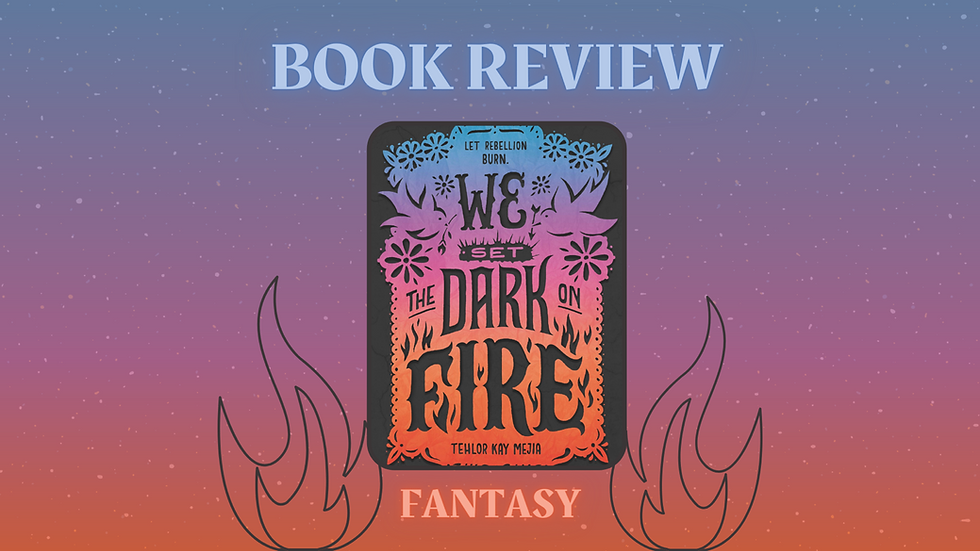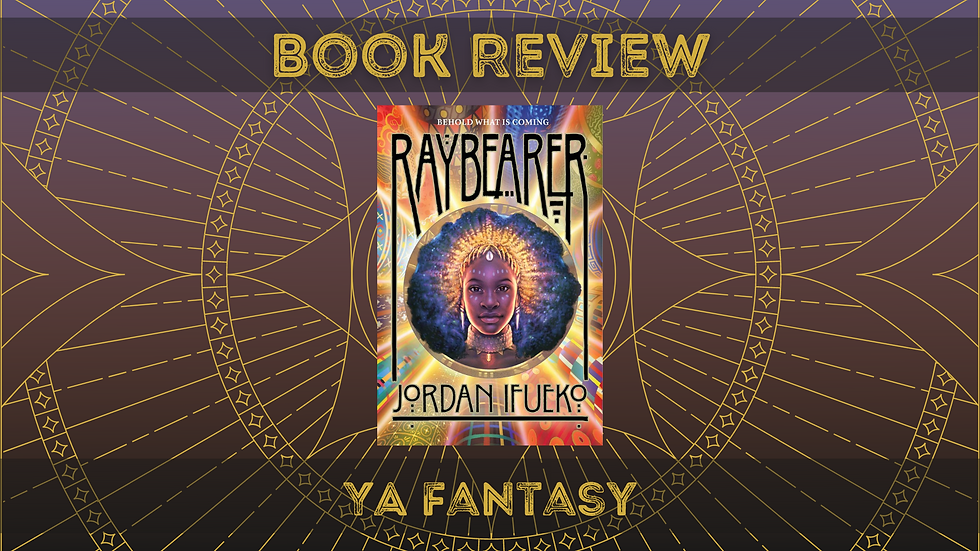Redemptor by Jordan Ifueko
- Gabby Womack
- Nov 11, 2021
- 3 min read

Rating: 5 stars
Genre: YA Fantasy
Representation: Dark-skinned Black folx, Asexuality
Themes: Justice, reparations, power, guilt, chosen family, self-isolation/loneliness, love (different types)
Content Warnings: Suicidal ideation & emotional manipulation
Description
For the first time, an Empress Redemptor sits on Aritsar's throne. To appease the sinister spirits of the dead, Tarisai must now anoint a council of her own, coming into her full power as a Raybearer. She must then descend into the Underworld, a sacrifice to end all future atrocities.
Tarisai is determined to survive. Or at least, that's what she tells her increasingly distant circle of friends. Months into her shaky reign as empress, child spirits haunt her, demanding that she pay for past sins of the empire.
With the lives of her loved ones on the line, assassination attempts from unknown quarters, and a handsome new stranger she can't quite trust . . . Tarisai fears the pressure may consume her. But in this finale to the Raybearer duology, Tarisai must learn whether to die for justice . . . or to live for it.
Review
I love this book/duology! Ifueko somehow managed to deliver another hard-hitting book not only packed with action but also with careful contemplations of what justice means, guilt vs. conviction, imposter syndrome, and fighting to survive in a world that's falling apart. In the author's note, she shares that she had a lot less time to write this novel and did so during the pandemic. That is a whole lot of pressure! I would have understood if she had to push back the deadline or had produced a less than amazing second novel, but Ifueko somehow knocked this out of the park despite those obstacles or, rather, because of them. With this lens of how the plot came to be, it's understandable. Echoing the events of last Summer and ongoing social justice issues, Tarisai and her counsel siblings come into their own at the same time as mass unrest and cries of injustice that they are now tasked with confronting. As a part of the most powerful family in her empire, Tarisai began learning of her family's devastating role in the suffering of commoners in Raybearer. Now, she is hit with the grief and guilt of it all.
I'm really happy that Ifueko brought this guilt into the story as this is something that many people are struggling with. When met with guilt some people get angry and decide to make excuses while others seem frozen by it. In discussions of race and Critical Race Theory, white conservatives seem to have taken the former approach. Many of them understand that racism exists, but refuse to learn more and allow their children to because they are under the impression that it is meant to make them feel guilty and hate being white. However, Redemptor has a quote that explains why this is not the actual goal.
Guilt is self-centered, and leads only to destructive obsession. But conviction brings balance—a sense of purpose beyond oneself.
This is the first time, I think, that I've read a book that describes being in a place between learning and action. Many Fantasy books with revolutionary plots seem to depict their heros as discovering injustice and immediately stepping up to fight it. This book approaches this from a more realistic standpoint, in my opinion. Tarisai has been trained to understand puzzles and work to solve them. Therefore, she is often a few steps ahead of other revolutionaries as she is not only thinking of dismantling but also who can be affected by it and what rebuilding looks like. Since she is more careful in her planning, this also means that she is plagued by feelings of inadequacy, imposter syndrome, and loneliness. She feels the urgency to do something to make up for all of the wrongs but also fears that she will never do enough. I've felt this way a lot and I'm quite sure that many people who strive to fight injustice feel the same. The thing is, it seems like there isn't enough people who care and therefore, we can feel as if we are alone in this fight. But working alone not only burns us out, it also ignores the power of working together and sharing the weight. Movements die out more easily when they are not unified.
It's exhausting work and often thankless, but what does the alternative look like? What does giving up do? Who does it help? No one. So we must continue to fight for the world we want to live in.
As you can tell, I passionately recommend this book to everyone. Especially to those wanting to teach/learn about activism, social justice and anti-racism/anti-oppression. This duology would be great for courses on literature, philosophy, social justice, history, sociology, and even psychology.







Comments